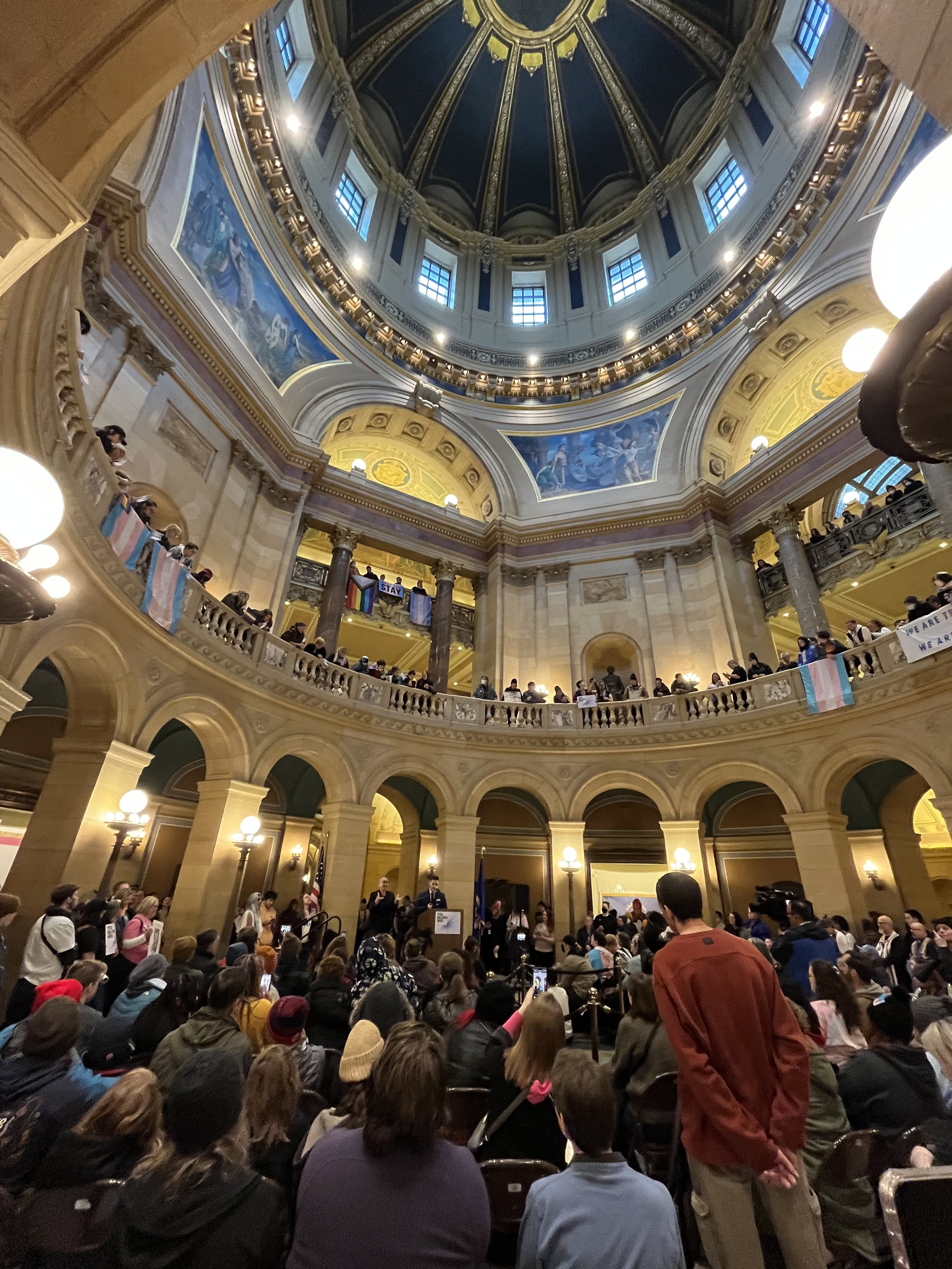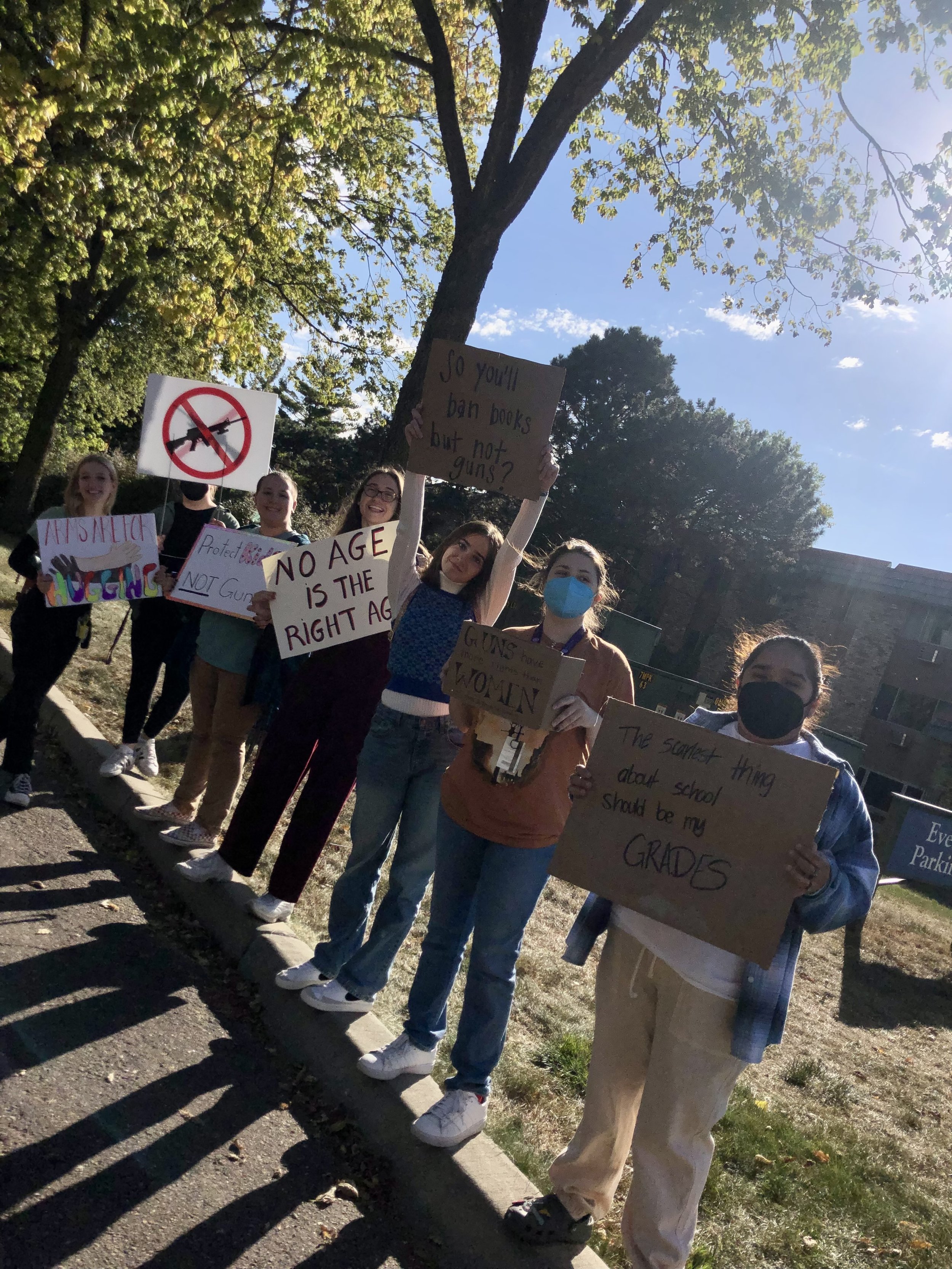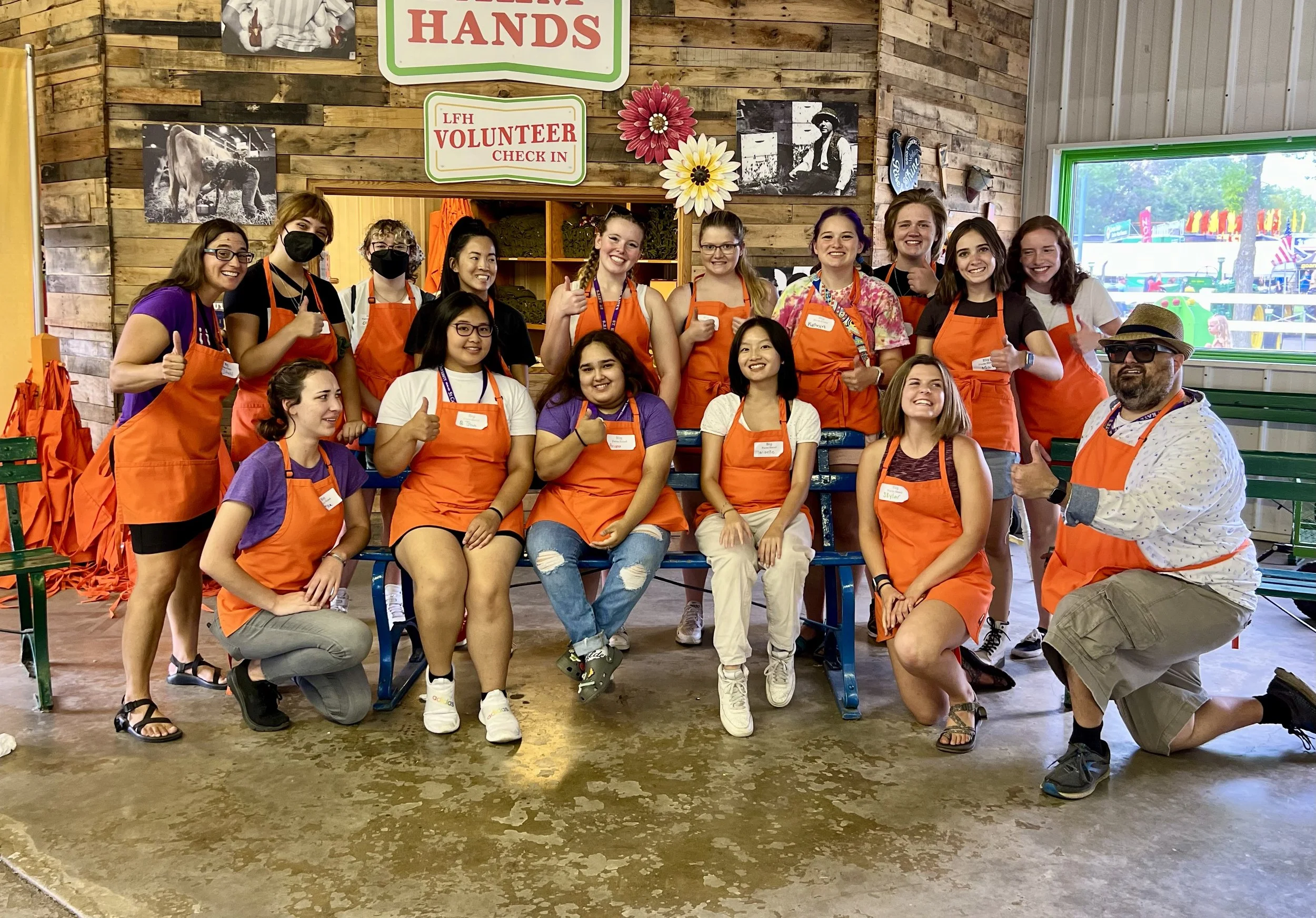Special Edition Spring 2023: A Political Activist’s Adventure Guide
By Ella Tracy
St. Kate’s mission statement is educating women to lead and influence. We learn ways to carry out this mission in our fields of study every day, but what about influencing broader social justice issues? No matter the topic, there are ways for you to advocate for change and justice at the state level and in the local community.
Getting involved with things like state and local government, coalitions, nonprofits and similar organizations or organizing protests can be nerve-racking, but they are wide-ranging and effective methods to bring about change. Here’s a crash course of advocacy basics that I wish I’d known when I started my adventures in political activism.
State Advocacy
Policies at the state level touch every aspect of our lives. Tuition, food prices, child care, public transit, environmental issues, safety and more are affected by what happens at the Minnesota State Capitol. While national policy is important, the U.S. federalist system of government gives states sovereignty to make their own laws. This means that state policy is simultaneously more accessible and impactful for state residents.
The Minnesota State Capitol is the People’s House. Anyone can advocate — or lobby, as the legislators call it — for any issue to any legislator. Your voice always makes a difference, so here are some tips for navigating advocacy at the state level.
Get to Know Your Legislators
Two people represent your district in the state legislature: a representative and a senator. Their job is listening to the needs of their constituents (That’s you!) and bringing those needs before the state government. The Minnesota State Legislature website (leg.mn.gov) has a database where you can look up your representative and senator by your address. Email them at any time to talk about issues you’re interested in, or contact their legislative assistant to set up an in-person appointment.
If you are an out-of-state student, your Minnesota representative is Dave Pinto and your Minnesota senator is Erin Murphy. They represent District 64B, which is the district St. Kate’s is in. Both love meeting and chatting with St. Kate’s students.
Understand the Legislative Process
Being educated on how laws are made will help you engage most effectively with the system. There are hundreds of amazing resources online where you can explore more details. Visit the Minnesota State Legislature website for information specific to Minnesota. Another great starting point is the St. Kate’s library or YouTube — I highly recommend Crash Course’s series on U.S. Government and Politics.
The basics: Laws start as bills which are debated in the House or Senate chambers and in committee meetings. Bills have to be approved in all the committees they pass through to be voted on by the House and Senate. Once approved by both chambers, the governor can sign the bill into law.
Visit the State Capitol
The State Capitol is open to the public during the week. You don’t have to be visiting a legislator. There are guided tours available every hour where you can learn more about the legislative process and hear some fascinating Minnesota history. Entrance into the capitol and the tours are free. Visit the Minnesota Historical Society website (mnhs.org) for more details.
Protests and rallies are held at the state capitol regularly as well. Any organization advocating for the issue you’re concerned with will likely be at the capitol at some point. Visit their website/social media or reach out to the organization’s leaders to find out when the rally or protest will take place. The energy at rallies is unmatched, addictive and transformative. Attend as many as you can to learn, to listen, to be in community and to call for justice.
Protestors rally in the Capitol Rotunda to advocate for trans rights on Trans Day of Visibility
Getting Involved in the Legislative Process
If you have a specific bill or topic you’re interested in, visit the Legislative website under “Bills” to find committee hearing times, bill authors, official actions and more. Email legislators who are on the committees the bill is being heard in to encourage/discourage their vote. You can also set up a meeting to ask questions or advocate for the bill.
When bills are heard in committees, there are always options for public testimony. This is an amazing and unique opportunity to tell your story relating to a specific bill to the entire committee. Contact the committee’s legislative assistant (posted on the Legislative website) to ask about hearing times and express your interest in testifying.
If there isn’t already a bill to address your issue, brainstorm what committee you think has jurisdiction over the issue. Contact members on the committee (including the chair) and share your concerns via email or at an in-person meeting. You can also meet with your district’s representative and senator; they can often point you in the right direction.
A friend and I met Rep. Alica Kozlowski (O8B, DFL) at the Trans Rights rally
Community Advocacy
Advocacy at the state capitol is crucial so legislators hear and understand the voices of their broad constituencies. But sometimes, you can have a more direct influence at the community level. Here are some basic how-to’s!
Start Local
The St. Kate’s community always has something going on. The Community Work and Learning Office, located in the Office of Scholarly Engagement in the CdC, posts events happening on campus or nearby. In the last few months, St. Kate’s students have protested for gun control legislation with the Sisters of St. Joseph of Carondelet, attended marches for Missing and Murdered Indigenous Women, partnered with the Young Adult Coalition for a day of advocacy at the State Capitol, raised awareness about first-generation immigrant policy issues, discussed women’s education in Afghanistan and so much more.
CWL also has community partners — nonprofits and organizations in the area that students are encouraged to engage with. Visit CWL to learn more about these partners and see if any align with your interests!
Host Protests
Seriously. It sounds scary, but anyone can gather like-minded folks and make yourselves visible and loud.
Students at St. Kate’s did exactly that in April of 2022. Protestors gathered on the steps of Derham Hall to call for things like a formal LGBTQIA+ space, official staff for the MIPS office, transparency from the administration and accessibility around campus. A protest like this takes planning (deciding a date, time and place, finding speakers, organizing a list of demands) and advertising. Social media is an easy way to let people know when and where your event is happening. You can also distribute posters or use word-of-mouth.
Protests also don’t have to be formal. Think street corners with handmade signs. Just make sure the space you’re using to protest is public — not someone’s front lawn unless they’ve consented to the protest being held there — and that you aren’t obstructing normal flow of traffic. If you want to march in a street or gather large crowds and use sound amplifying equipment, you might need a permit. The American Civil Liberties Union (ACLU) is a great resource to utilize to learn your rights as a protestor and get a permit secured.
St. Kate’s students protest gun violence with the Sisters of St. Joseph
Get to Know Your Local Legislature
Cities and counties have their own governments too. Local governments can generally act faster on specific issues, so it can be beneficial to contact local legislators if there is something in your neighborhood or city you want to address.
St. Paul has the Mayor’s Office, through which city council meetings, boards and commissions are arranged. These are all similar to state committees, but focus on localized community issues. Visit stpaul.gov to find meeting times and locations.
Ramsey County, the county that St. Kate’s is located in, also has its own departments and commissioners. Commissioners are elected to represent smaller districts within counties. St. Kate’s is located in Ramsey’s fifth district, so our county commissioner is Rafael Ortega. (Rafael.E.Ortega@co.ramsey.mn.). Think of Commissioner Ortega as a point of contact through which you can find the right resources and people to solve an issue in the neighborhood.
Vote
At the state and local levels, one of the most important things you can do, regardless of your involvement, is vote. Vote in your local elections for county commissioners, mayors, court judges and city council members. Vote in state elections for senators, representatives, the governor and even changes to the Minnesota constitution. Vote in national elections for national representatives and the U.S. president. Whether you are vocalizing your concerns to legislators or filling out an oval on a ballot, your voice always matters.
Use it.









